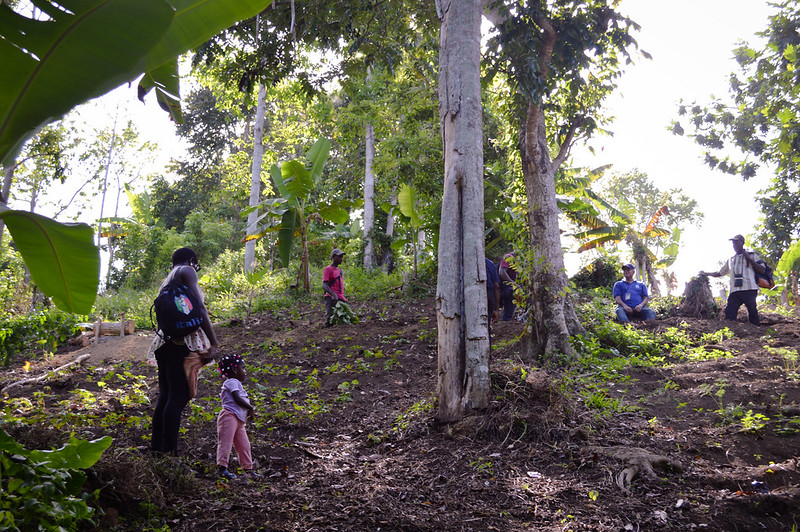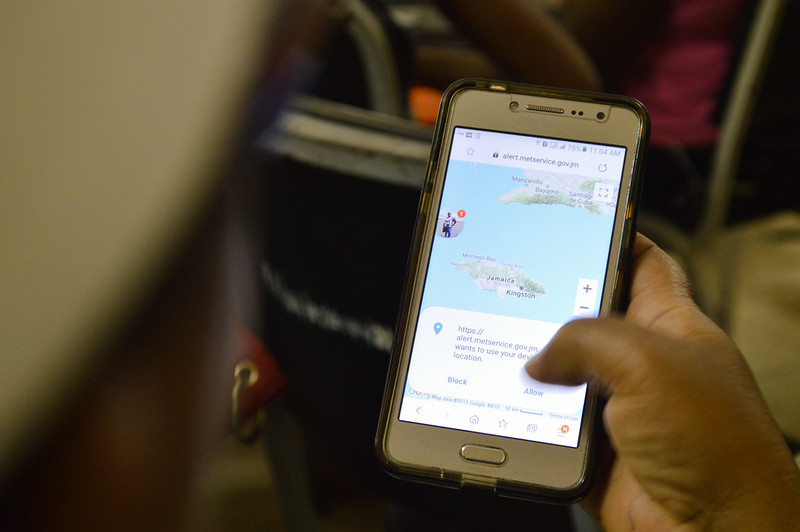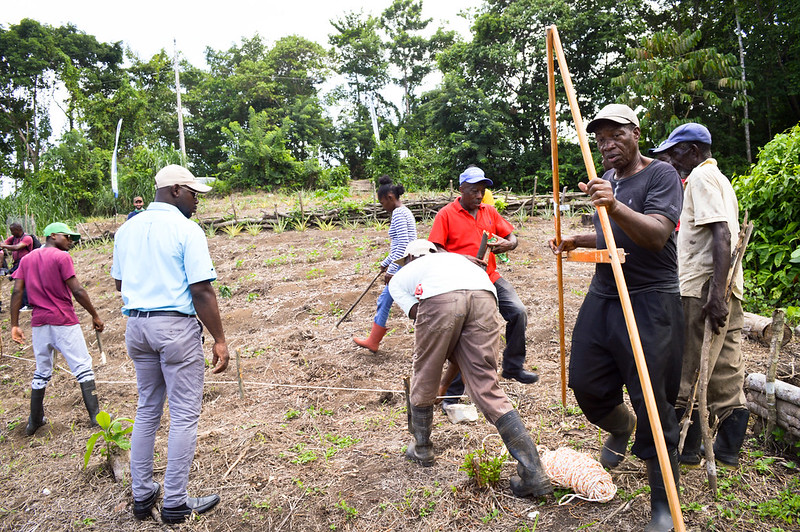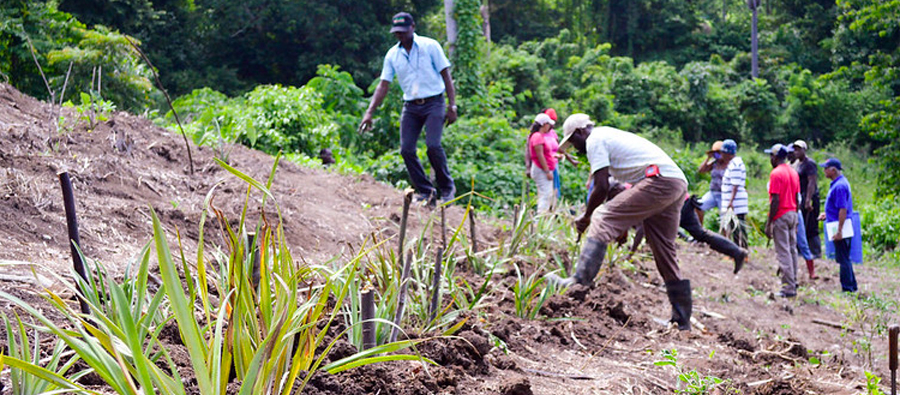Farmers frowned in concentration, gathered around Ewart Miller in the scorching sun as he demonstrated how a simple wooden A-frame can help properly space out crops when planting.
Staggered up a parched and sloping hillside, it was not difficult to see the challenges Jamaican farmers are facing from rising temperatures and increasingly unpredictable seasons.
Damage and losses linked to natural hazards in the past decade have totalled more than J$111.8 billion, and in 2014, Jamaica experienced one of its worst droughts since 1970, causing annual agricultural production to fall by 30 per cent.
Mr Miller, a land management officer with Jamaica’s Rural Agricultural Development Authority (RADA), is among the dozens of extension officers helping smallholders learn simple techniques to better protect their farms from the impacts of both drought and flooding.
Led by the EU-funded Technical Centre for Agricultural and Rural Cooperation (CTA), weekly training sessions take place in the three most climate-vulnerable of Jamaica’s 13 parishes. This is part of a wider project, also implemented in Ethiopia and Mali.

A hillside farm in Manchioneal, Portland, Jamaica.
Farmer field schools in some of the poorest communities provide lessons in contour farming to reduce the risk of soil erosion on steep hillside holdings. Extension officers also show farmers how to use mulch to retain moisture in the soil and prevent weeds or pests from growing.
“I used to grow bananas but I lost a lot of crops, not knowing it was climate change,” said Denise Reid, 61, who keeps a two-acre farm in Manchioneal, Portland.
“I had to change what I was doing. I started to take up pineapple, which really stands up to the drought. It helped me to put in other crops. I also do a lot of mulching.”
Ms. Reid, who started out with just 17 pineapple cuttings, now harvests fields of the fruit thanks to climate-smart techniques.
As well as practical training and demonstrations, RADA’s partnership with CTA has also allowed more farmers to receive bespoke weather forecasts and relevant advice via SMS or through a smartphone application.
For example, farmers are encouraged to harvest ripe fruit or avoid spraying crop protection products if wind is expected, or to avoid putting down fertiliser when rain is due.
“Digital profiling will allow the farmers to receive real-time weather data, enabling farmers to make decisions that were never normally at their fingertips,” said UnaMay Gordon, principal director of the Climate Change Division at the Ministry of Economic Growth and Job Creation.

A farmer downloads a weather advisory app in St Mary, Jamaica, as part of a project supported by the Technical Centre for Agricultural and Rural Cooperation (CTA).
The farmers are shown how to download and use the app at weather advisory training sessions led by Jamaica’s Meteorological Service, which said that in just St Mary parish, there were more than 145 bushfires in July 2019 alone. The service provides forecasts for up to three months in advance.
“Farmers shouldn’t be reactive to these events anymore,” said Glenroy Brown, climate service specialist at the Met Service.
Maureen McLeggon, 48, from St Mary, was among the farmers at a weather advisory service training session.
“It makes a lot of difference because I would be able to know when we will be having rain and what to expect,” she said.
“The season and conditions have changed. I have never experienced so much heat and it’s not only affecting us as human beings but also the plants. When you look at them, they’re dehydrated.”
Such training and information services have already proven successful in building the resilience of Jamaican farmers. During the 2014 drought, farmers who had not received training lost 72 per cent of their produce, compared with losses of 39 per cent among those who had.

Farmers practise contour farming at a field school in Manchioneal, Portland, Jamaica.
This project aims to improve food security and resilience for 50,000 people across Ethiopia, Mali and Jamaica throughh the promotion of climate-smart agriculture across Africa, the Caribbean and the Pacific.
“People are tired of talking about problems,” said Olu Ajayi, senior programme coordinator at CTA. “The question is how do you scale up these various climate-smart agriculture applications that have been proven in different places?
“We are promoting ICT-based extension information systems to reach 50,000 farmers while also working at the policy level to help extend climate resilience across the most vulnerable regions.”



